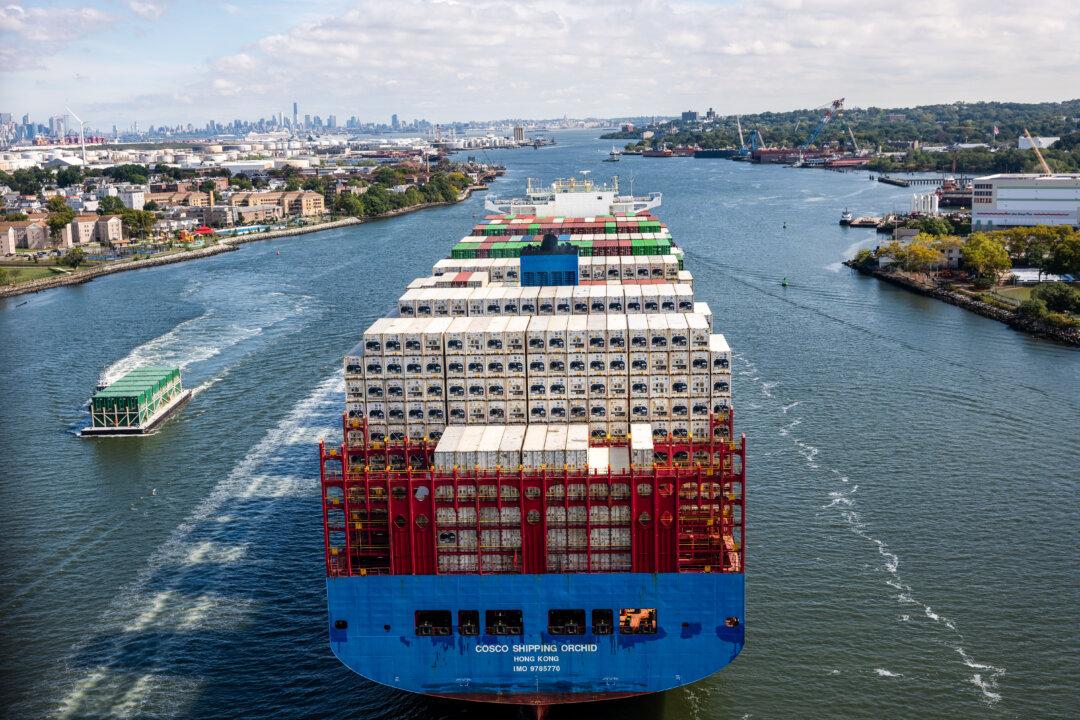The dockworkers’ union that briefly halted container ports from Texas to Maine in October 2024 has overwhelmingly voted to ratify a new labor contract, a deal the union’s leadership said would ensure labor peace for the next six years.
The contract has the backing of 99 percent of the International Longshoremen’s Association (ILA) rank-and-file members, the union announced on Feb. 25.





